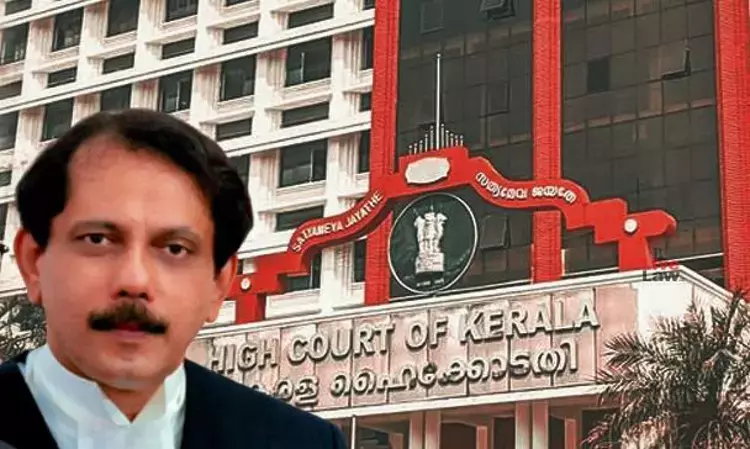- Home
- /
- High Courts
- /
- Kerala High Court
- /
- Advocate General's Order Declining...
Advocate General's Order Declining Sanction To Initiate Criminal Contempt Not Subject To Challenge In Court: Kerala High Court
Tellmy Jolly
3 March 2025 4:59 PM IST
The Kerala High Court held that refusal of sanction by the Advocate General for initiating criminal contempt proceedings under Section 15(1) of the Contempt of Courts Act of 1971 is not justiciable.Justice C.S. Dias passed the above order by relying upon the Apex Court decision in Joseph Kuzhijalil v Joseph Pulikunnel (1995). “In the light of the emphatic proclamation of the law in...
The Kerala High Court held that refusal of sanction by the Advocate General for initiating criminal contempt proceedings under Section 15(1) of the Contempt of Courts Act of 1971 is not justiciable.
Justice C.S. Dias passed the above order by relying upon the Apex Court decision in Joseph Kuzhijalil v Joseph Pulikunnel (1995).
“In the light of the emphatic proclamation of the law in Joseph Kuzhijalil's case, an order declining sanction by the learned Advocate General under Section 15 (1) (b) of the Contempt of Courts Act, 1971 is not justiciable.”
Section 14 prescribes procedure for cases where contempt is in the face of the Supreme Court or a High Court, while Section 15 outlines the procedure in which cognizance is to be taken in a criminal contempt proceeding, other than those falling under Section 14.
Section 15(1) reads thus, “15. Cognizance of criminal contempt in other cases.—(1) In the case of a criminal contempt, other than a contempt referred to in Section 14, the Supreme Court or the High Court may take action on its own motion or on a motion made by— (a) the Advocate-General, or (b) any other person, with the consent in writing of the Advocate-General….”
The High Court referred to the divergent views taken by the Apex Court in P.N.Duda v. P.Shiv Shanker and others (1988) regarding the justiciability of the decision to grant or decline consent in criminal contempt proceedings. The Court noted that as per the view of Justice Sabyasachi Mukherji, it would be incorrect to state that the Attorney General's decision could never be enquired into. It was stated that even if the Advocate General declines to grant consent, the Court could still entertain contempt proceedings on its own.
The Court then referred to the opinion of Justice Ranganathan, who stated that the role of Attorney General was similar to that of an Amicus Curiae to assist the Court. He stated that if Attorney General grants consent, then no person can challenge it, since the Court still has the discretion to dismiss the petition if it finds no merit. He also stated that reviewing the decision of Attorney General was unnecessary since no one is deprived of a remedy and the petitioner could always approach the Court to take suo moto contempt action.
In the facts of the case, the petitioner sought Advocate General's consent for initiating criminal contempt against the respondent who filed false statements in affidavit before the Court. The petitioner also filed application to initiate proceedings under Section 229 (punishment for false evidence) of the BNS against the respondents.
The Advocate General issued an order declining sanction to initiate contempt proceedings against the respondent, which was challenged in this writ petition.
The Petitioner argued that the order declining sanction is justiciable since it was passed without application of mind.
On the other hand, the Advocate General submitted that grant or refusal of sanction is inconsequential since Court can dismiss the contempt case even if sanction is granted. It was argued that the refusal of sanction also does not preclude the Court from taking suo motu cognizance of the contempt.
As such, the Court referred to the Apex Court decision in Joseph Kuzhijalil (supra), wherein it was stated that order refusing sanction under Section 15 (1) was not justiciable since no right of a party could be said to have been impaired.
Accordingly, the Court dismissed the writ petition. It also clarified that the Petitioner can continue proceedings under Section 229 of the BNS. Additionally, the Court noted that order of Advocate General declining sanction will not preclude the Court from considering whether criminal contempt of court proceeding is to be initiated against the respondent or not.
Case Title: N Prakash v R Ashakumari
Case No: WP(C) NO. 2407 OF 2025
Citation: 2025 LiveLaw (Ker) 150

